
One Ocean Expedition Docks in Nassau
Our senior fisheries scientists Dr Krista Sherman returned from a once-in-a-lifetime voyage last week, sailing from Havana to Nassau as part of the One Ocean Expedition, a United Nations-backed initiative to highlight the ocean’s crucial role in fostering global sustainability.
Dr. Sherman spent several days onboard the Norwegian state-of-the-art research vessel, Statsraad Lehmkuh. Deemed a “floating university,” the ship unites diverse groups of marine scientists, students, trainees and professionals as it circumnavigates the globe.
“It was an incredible opportunity to be part of the One Ocean Expedition,” Dr Sherman said. “It was also inspiring to see how integrated conservation research and advocacy is in Norway and it’s something we can definitely learn from.”
The 107-year-old ship departed from Arendal, Norway on August 20, and will continue sailing throughout 2023, spanning 55,000 nautical miles and 36 ports worldwide. Equipped with modern instrumentation, the vessel will collect high-quality data continuously from a wide range of environments, including CO2 levels, ocean acidification and micro-plastics.
“The expedition is a recognized part of the United Nations Decade of Ocean Science for Sustainable Development. Its goal is to create attention and share knowledge about the crucial role of the ocean for a sustainable development in a global perspective,” said Sissel Rogne, CEO of the Norwegian Institute of MarineResearch (IMR) in a news release.
“We will inspire people to engage in the work of creating a clean and healthy ocean. We will build new knowledge about the use and preservation of marine resources and share this with the rest of the world.”

On Friday, December3, Dr. Sherman co-moderated an Ocean Health and Seafood seminar for participants on board the One Ocean Expedition while it was docked in theNassau Harbour. In her presentation, she provided an overview of fisheries research and conservation efforts in The Bahamas.
“Approximately 30% of fish species have been overexploited, representing significant losses to biodiversity, ecosystem services and socioeconomic contributions,” said Dr Sherman, whose doctoral research assessed the status, population structure and dynamics of Nassau grouper spawning aggregations, and was critical to the development of the first Nassau Grouper Conservation Management Plan for The Bahamas.
“Improving our understanding of fisheries is critical to facilitate effective management and conservation initiatives. This is particularly important for The Bahamas, a small island developing state where fisheries products account for 10 percent of the protein for the population.”
The commercial fisheries sector employs 9,300 people and has an estimated export value of US$90 million. Recreational fishing sector provides 18,000 jobs directly and indirectly $527 million per year, Dr Sherman informed her audience.
Pointing to the critically endangered Nassau grouper and the near-threatened bonefish, she said trade of these species must be regulated to ensure their very survival. In The Bahamas, she explained, fishery resources are managed through gear restrictions, quotas, size limits, closed seasons, bans and marine protected (no-take) areas.
Indeed, The Bahamas has more coral reef area than any other nation in the region including one of the world’s largest contiguous coral reefs, the Andros Barrier Reef. Eleven percent of the nation’s marine environment is currently protected within national parks.
According to the marine scientist, however, emerging fisheries – that is, bycatch, or species unintentionally caught by fishermen – “have the potential to expand the fishing sector, improve food security and provide income to a greater number of fishers.” Even so, emerging fisheries present new challenges for management due to lack of data on landings, population dynamics and the ecological function of these species.
“Fisheries research and conservation programs are crucial to reduce scientific knowledge gaps, provide guidance for fishery regulations and to promote behavioral change for ongoing conservation management in The Bahamas and Caribbean,” Dr Sherman noted.
Other Bahamians participating in the Havana to Nassau leg of the One Ocean voyage included representatives from Bahamas Reef Environment Educational Foundation (BREEF),the Bahamas National Trust and the Bahamas Marine Mammal Research Organization.


Build a Coral Reef for the Holidays | PIMS x Partanna
PIMS is partnering with Partanna to build a 100m² carbon-negative reef. Rick Fox is matching donations up to $25k. Help us build a sanctuary for the future.
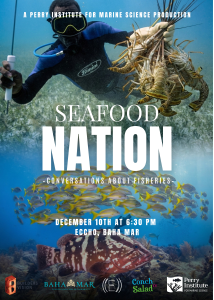
“Seafood Nation” Documentary Premiere Explores the Heart of Bahamian Culture and the Future of Fisheries
NASSAU, The Bahamas | December 5, 2025 – From the bustling stalls of Potter’s Cay to family kitchen tables across the archipelago, seafood is far more than just sustenance in
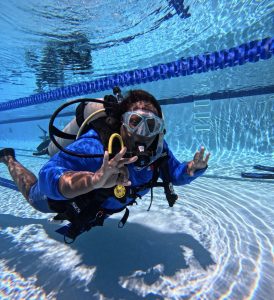
PIMS and Disney Conservation Fund Partner to Train 19 Government Divers
PIMS dive training in Nassau strengthened national coral restoration capacity across government agencies. Bahamas Dive Training Builds National Coral Restoration Capacity Last fall, between the months of September and October,
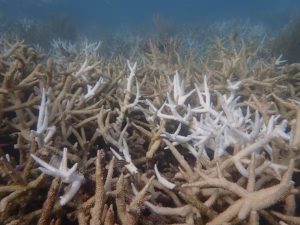
Florida’s Coral Reef Crossed a Line: What Functional Extinction Really Means for Elkhorn and Staghorn Corals
Reefs didn’t just bleach. They functionally vanished in one summer. A new Science study co-authored by researchers from the Perry Institute for Marine Science (PIMS) has found that Florida’s two
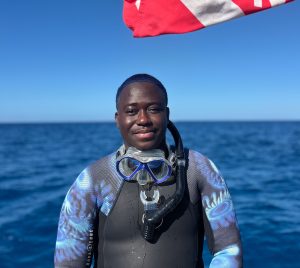
Q&A: Understanding the IDC Course at PIMS with Duran Mitchell
A former aquarist turned coral conservationist, Duran is passionate about understanding how all marine life connects. PIMS & IDC: Empowering New Dive Instructors for Marine Conservation PIMS & IDC: Empowering
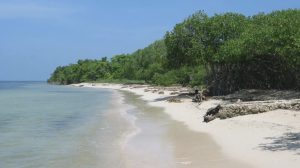
Forbes Shines a Spotlight on Coral Reef Restoration in the Caribbean
When Forbes highlights coral reef restoration, it signals something powerful: the world is paying attention to the urgent fight to protect reefs. And solutions are within reach. Recently, Forbes featured Dr. Valeria



